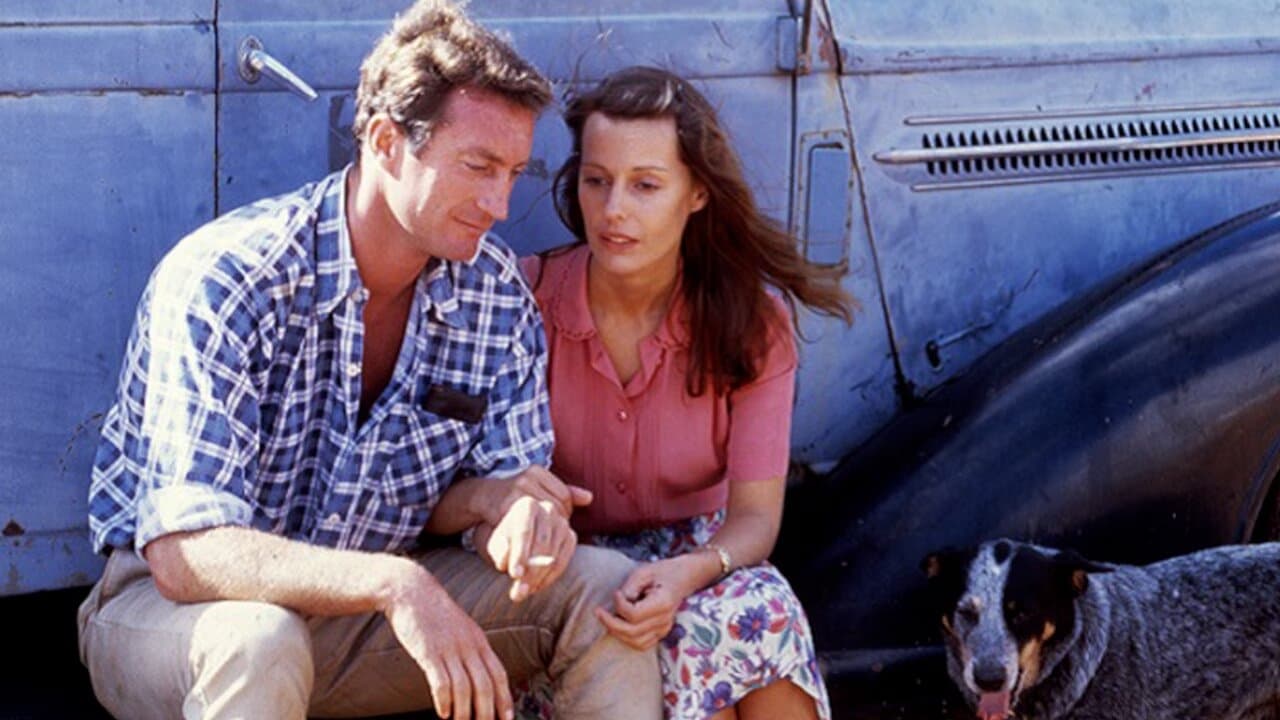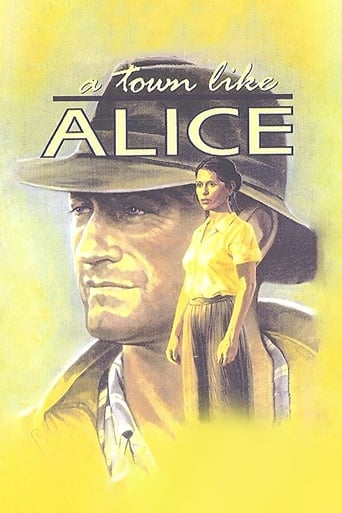

Boring
... View MoreThe performances transcend the film's tropes, grounding it in characters that feel more complete than this subgenre often produces.
... View MoreGood films always raise compelling questions, whether the format is fiction or documentary fact.
... View MoreOk... Let's be honest. It cannot be the best movie but is quite enjoyable. The movie has the potential to develop a great plot for future movies
... View MoreThis movie is a sleeper - I've watched every miniseries that was ever on TV, some many times, and this one is the best. Wonderfully cast, superbly acted, and the characters are well-developed. Helen Morse perfectly fits the part of Jean Paget - strident, in control, sharp, and a bit belligerent. She bounces well off of Joe Harmon, the cowboy/taciturn/"It'll be okay" sort of guy. I was sorry that the movie didn't stick to the book, in that there was no romantic interest between Noel Struan and Jean Paget. For those who don't know, this is taken from a true story about English women marched around Malaya for 3 years by the Japanese, who indeed did not know what to do with them. Very few of them survived. Neville Shute talked to one of them, and this is her story. This movie deserves to be in everyone's collection who loves WWII stories.
... View MoreI don't know where this movie was shot, but because it was shot on location, it has the authenticity that this story deserves. It is the story of a young English woman who is taken prisoner by the Japanese in southern Asia at the beginning of WWII, with a group of other English women. There is no prison camp for women so they are forced to march for months from place to place, because the Japanese don't know what to do with them. The courage and resilience of the English women, and the bravery of the Australian soldier who tries to help them, is the core of the movie. This movie is very long, maybe 10 hours, so you can watch it as it was shown on PBS, as a series, which actually adds to the feeling of the endless journey this woman makes from England, across this remote island, and finally Australia. Story, cinematography, location and actors combine to make this a movie not to miss. My only question is why this hasn't been released on DVD!
... View MoreThis review contains what might be a spoiler if you never read the book or saw the cover of the video box. So if you want to approach the movie not knowing anything about it, except that I like it a lot, stop here... The production values are not first rate, but the acting between the leads is, and they give the romance between them more life than Shute does in his novel (although I generally prefer the novel). My very faint objections to the film as opposed to the book is that the film dumbs-down some of the relationships with secondary characters, and between the lead characters in a scene toward the end of the film, to provide for some not at all realistic dramatic tension and as a general plot device. All this is handled much better in the book, with the result that I find the end of the book quite a bit more touching than the end of the movie.
... View MoreA TOWN LIKE ALICE first captivated me when I was only 14 and caught a re-run of it on T.V. in 1984. It has since remained one of my most favorite romances on film. It is a modest, understated and "un-Hollywood" (thank God!) work, yet it is epic in the way it depicts the two very likable main characters, Joe Harmon and Jean Paget (played by Bryan Brown and Helen Morse, respectively) meeting during a tumultuous backdrop of war and despair, falling in love in spite of it, and then becoming blissfully reunited. But don't worry--I haven't given away the "happy ending!" The last half of the film that follows is what gives this work its integrity. The lovers then have to overcome the adversity of the differences of their cultures and beliefs--her being English and he being Australian. Jean Paget is an admirable, headstrong character, who when placed in the backwards Australian outback of the 1940's, is put to the test with her lover Joe, making one realize that love relationships don't go perfectly, but if the love is strong, it will persevere.This movie truly pulls the viewer into the romance between Jean and Joe and you feel every heartache and every joy that they share in your heart as well. But these are not shallowly constructed "romance novel characters." They are complex and imperfect and through their hardships, show the audience that any love such as theirs is truly worth fighting for.So, as long as this movie is on tape (being a two- part mini-series), please be patient with it (like you would with an E.M. Forster novel-to-film adaptation) because I guarantee the reward will be ever so sweet. It will draw you in and be compelling from start to finish with a story you will really care about. A wonderful, wonderful picture! Plus, the soundtrack is absolutely gorgeous and moving.
... View More